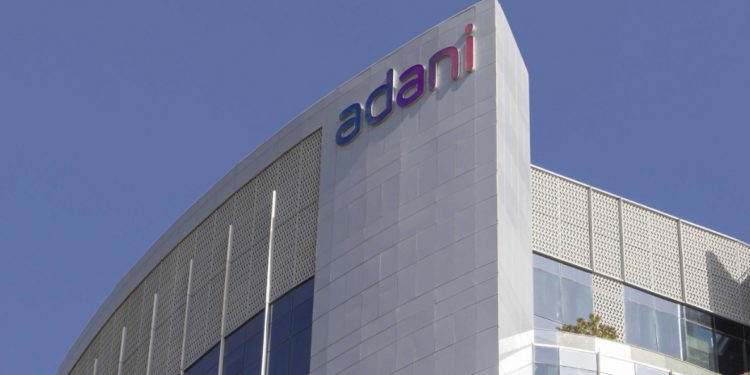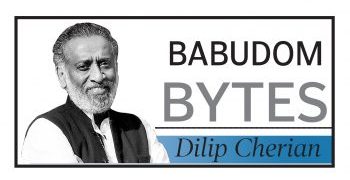New Delhi: The government has not set up any committee to probe allegations a US short seller labelled against the Adani Group, but stock market regulator SEBI is investigating market allegations against the group, the Lok Sabha was informed Monday.
A separate investigation into imports of Indonesian coal by the conglomerate hasn’t reached finality, Minister of State for Finance Pankaj Chaudhary said.
Lok Sabha saw several questions being put by MPs to the government on the Adani issue, which were replied through written responses by the minister.
To a question asking if the government had constituted any committee to investigate allegations made against the Adani group by Hindenburg Research, he said, “No”.
In the January 24 report, US short-seller Hindenburg Research alleged that the Adani group was “engaged in a brazen stock manipulation and accounting fraud”, and used offshore shell companies to inflate stock prices.
The group has denied all Hindenburg allegations, calling them “malicious”, “baseless” and a “calculated attack on India”.
To a separate question, Chaudhary said the nine listed companies forming part of Adani group saw a 60 per cent decline in market capitalisation from January 24, 2023 till March 1 subsequent to the publication of the Hindenburg report.
On the allegations, he said the Securities and Exchange Board of India (SEBI), as the statutory regulator of securities markets, is mandated to put in place regulatory frameworks for effecting stable operations and development of the securities markets including protection of investors.
“As per its mandate, it conducts investigations into any alleged violations of its Regulations by any market entity,” he said. “It is, accordingly, undertaking an investigation into the market allegations against the Adani Group of companies.”
He, however, did not give details.
To a separate question on an investigation by the Directorate of Revenue Intelligence (DRI) into import of power generation and transmission equipment by Adani, he said the probe has “concluded” and the “report has been submitted before the relevant judicial authorities”.
He, however, did not reveal the findings.
On the alleged irregularities in imports of Indonesia coal by the Adani group companies, he said, “investigations by DRI have not reached finality as information sought from exporting countries through execution of Letters Rogatory (LRs) is under litigation.”
In January 2020, the Supreme Court paved the way for DRI to investigate allegations of overvaluation of coal imports from Indonesia by the Adani group. The apex court through the January 9, 2020, order stayed an October 17, 2019 judgment of the Bombay High Court which granted relief to Adani group by quashing LRs sent to various countries including Singapore, seeking details of the group’s coal imports from Indonesia.
On the Hindenburg allegations, Chaudhary said SEBI had told the Supreme Court that it was “already enquiring into the allegations made in the Hindenburg report as well as the market activity immediately preceding and post the publication of the report, to identify violations of SEBI Regulations including but not limited to SEBI (Prohibition of Fraudulent and Unfair Trade Practices relating to Securities Market) Regulations, 2003, SEBI (Prohibition of Insider Trading) Regulations, 2015, SEBI (Foreign Portfolio Investors) Regulations, 2019, Offshore Derivative Instruments (ODI) norms, short selling norms, if any.”
The apex court on March 2 directed SEBI to conclude the investigations within two months. It also constituted an expert committee for the assessment of the extant regulatory framework and for making recommendations to strengthen it.
The minister said the government had suggested to the apex court that the expert committee should look into Hindenburg allegations as well as undisclosed short positions taken on Adani stocks.
The nine Adani group companies, which lost 60 per cent market value after Hindenburg report, are part of BSE Sensex and have a combined weight of below 1 per cent in Nifty, he said.
“The volatility in the stocks of these companies have not had any significant impact at the systemic level. Nifty 50 declined by around 2.9 per cent in the month of January 2023 and by around 4.9 per cent in the 2-month period of January and February 2023,” he said.
The minister said the pricing of individual stocks and variations, over or undervaluation, and the price risks borne by investors are determined by the dynamics of demand and supply.
“The regulatory framework provides for surveillance mechanisms which are triggered in instances of volatility in share prices of specific companies.”
On exposure of the state-owned Life Insurance Corporation of India (LIC) to the Adani group, he said the country’s largest insurance company had Rs 6,182.64 crore outstanding loans to the conglomerate as on March 5, 2023.
“The five public sector general insurance companies have informed that these companies do not have loan/credit exposure to Adani Group of companies,” he said.
“Public sector banks have informed that loans are sanctioned after assessing the viability of projects, prospective cash flows, risk factors and availability of adequate security and repayment of loans are ensured by the revenue generated by the project and not by the market capitalisation of the company.”
He referred to LIC’s January 30 statement to answer questions over the company’s investments in Adani stocks.
In that statement, LIC had said it had over the years purchased shares in Adani group companies for Rs 30,127 crore and its exposure to the conglomerate was 0.975 per cent of its total AUM at book value.
Public sector general insurance companies – New India Assurance Company Ltd, United India Insurance Company Ltd, National Insurance Company Ltd, Oriental Insurance Company Ltd and General Insurance Corporation of India – had a total exposure of Rs 347.64 crore in Adani Group of companies as of January 31, 2023, which is 0.14 per cent of the total AUM of all the five companies, he added.
PTI







































